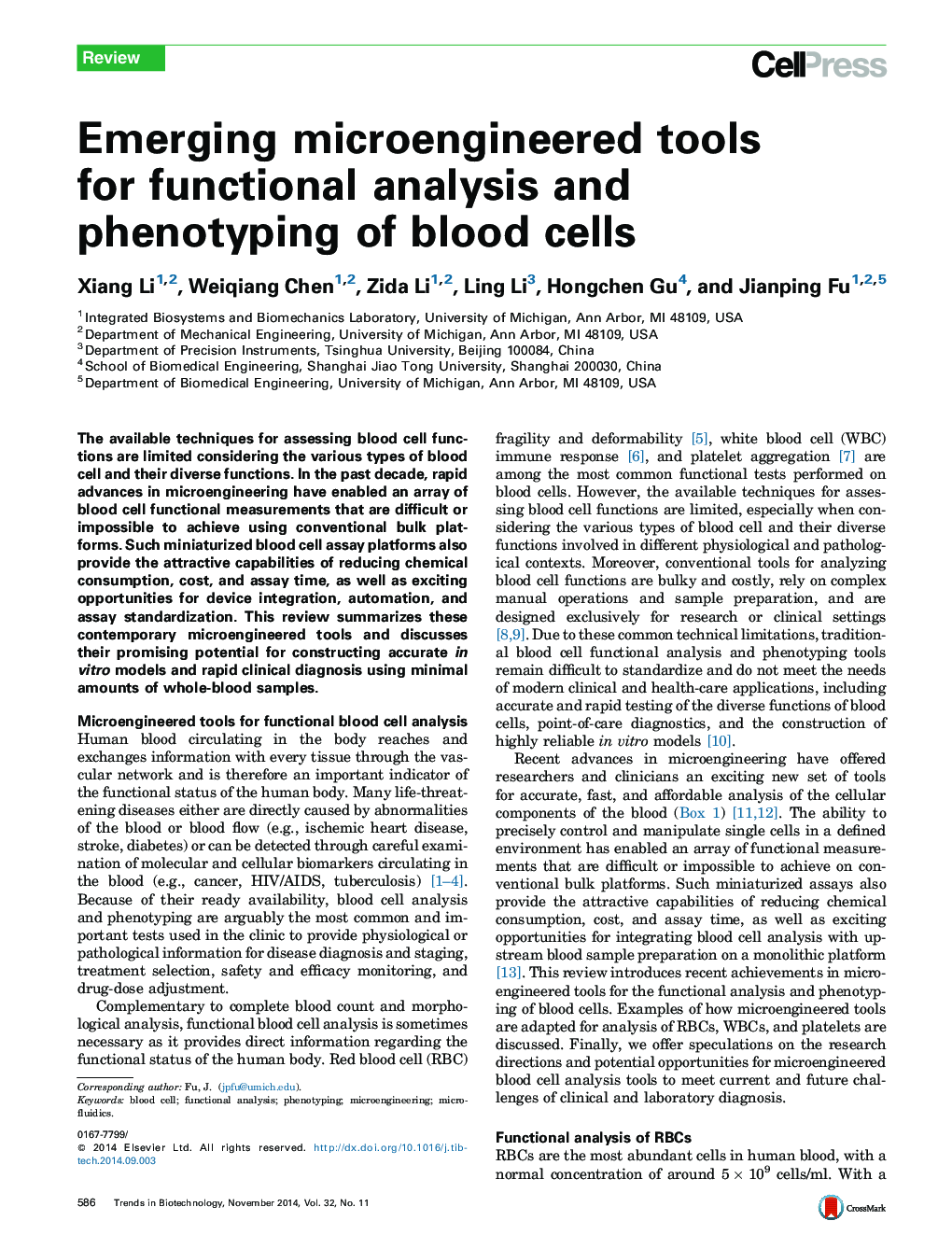| Article ID | Journal | Published Year | Pages | File Type |
|---|---|---|---|---|
| 36972 | Trends in Biotechnology | 2014 | 9 Pages |
•Microengineered tools are capable of precise manipulation of single cells to achieve rapid, high-resolution, multiparameter functional analysis and phenotyping of blood cells.•Microfluidics enables high-throughput deformability measurements on single RBCs and WBCs, as well as easy assessment of ATP release by RBCs.•Microengineered functional immunoassays enhance the performance of traditional immunoassays and allow label-free detection of cytokines.•Microengineered tools enable easy and accurate evaluation of various platelet functions, from platelet adhesion to platelet contraction.
The available techniques for assessing blood cell functions are limited considering the various types of blood cell and their diverse functions. In the past decade, rapid advances in microengineering have enabled an array of blood cell functional measurements that are difficult or impossible to achieve using conventional bulk platforms. Such miniaturized blood cell assay platforms also provide the attractive capabilities of reducing chemical consumption, cost, and assay time, as well as exciting opportunities for device integration, automation, and assay standardization. This review summarizes these contemporary microengineered tools and discusses their promising potential for constructing accurate in vitro models and rapid clinical diagnosis using minimal amounts of whole-blood samples.
